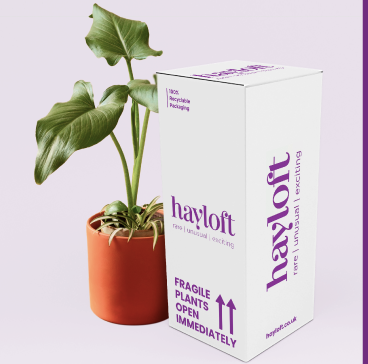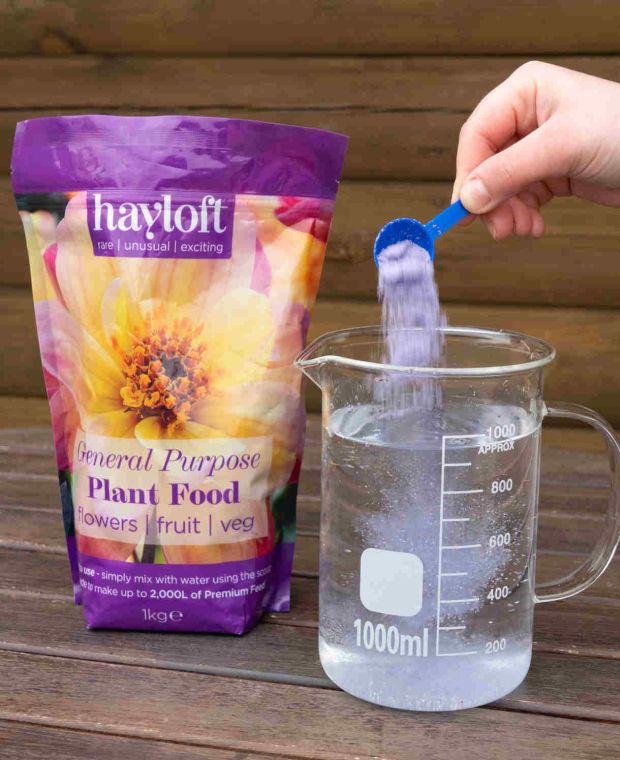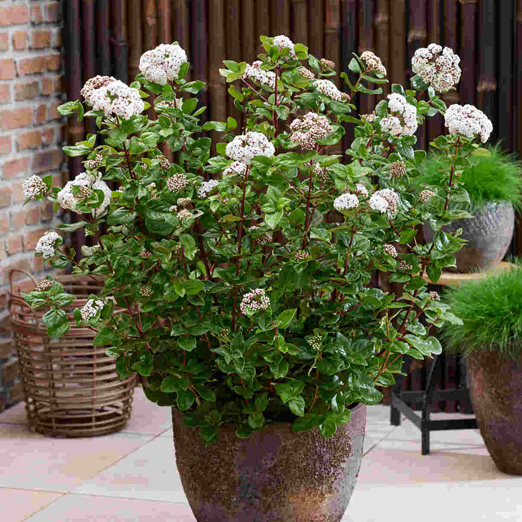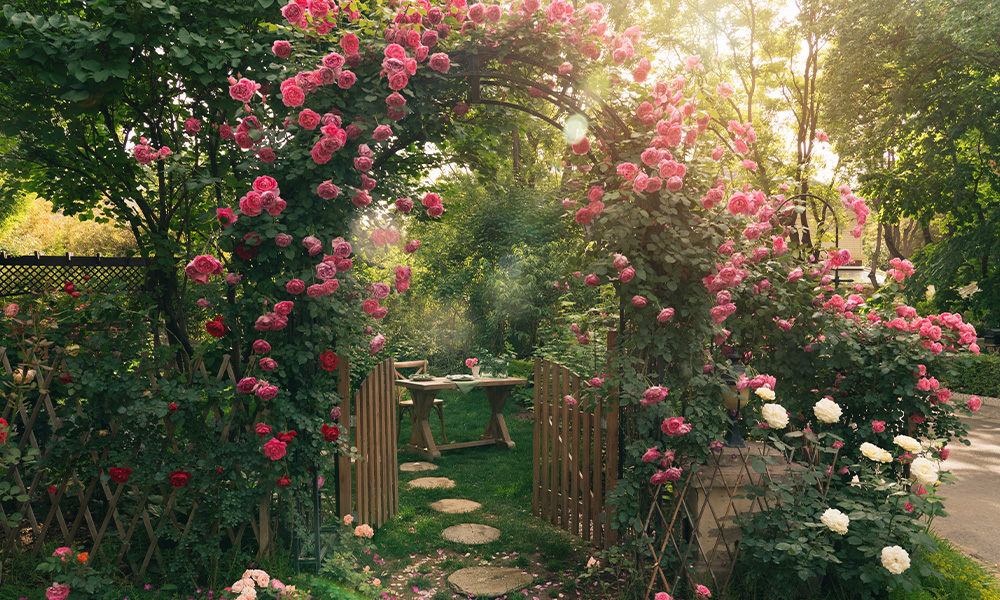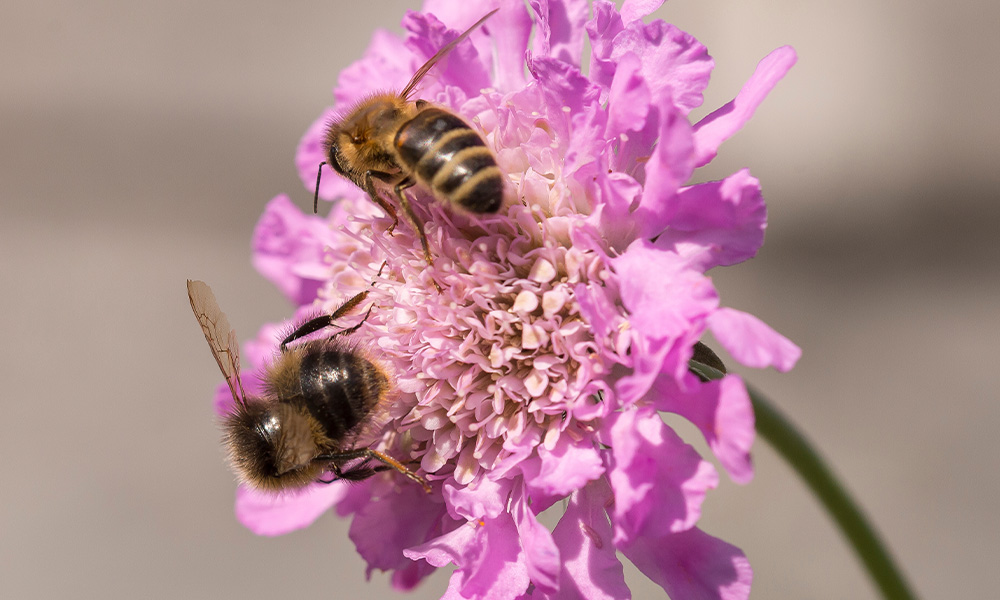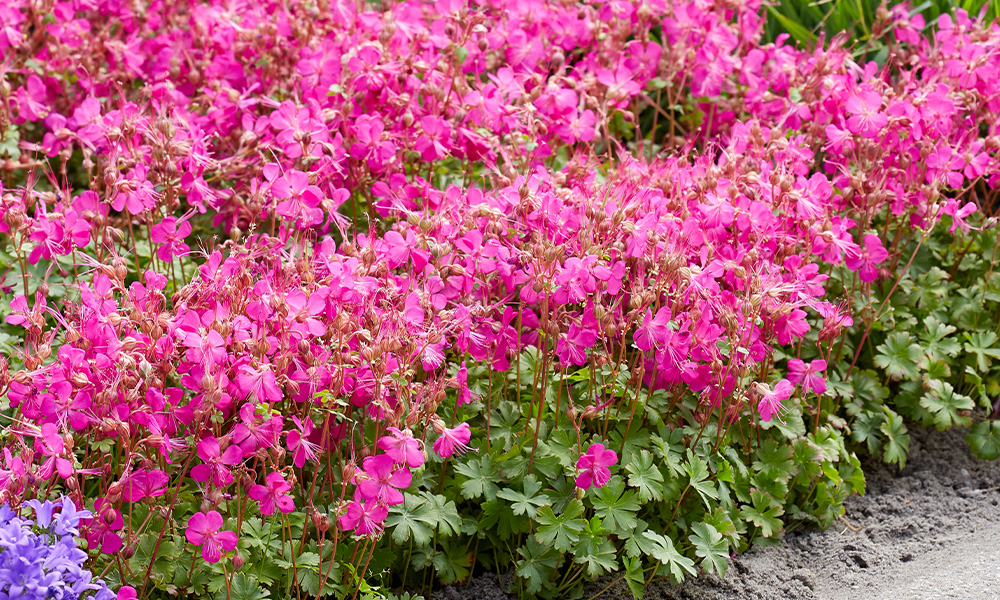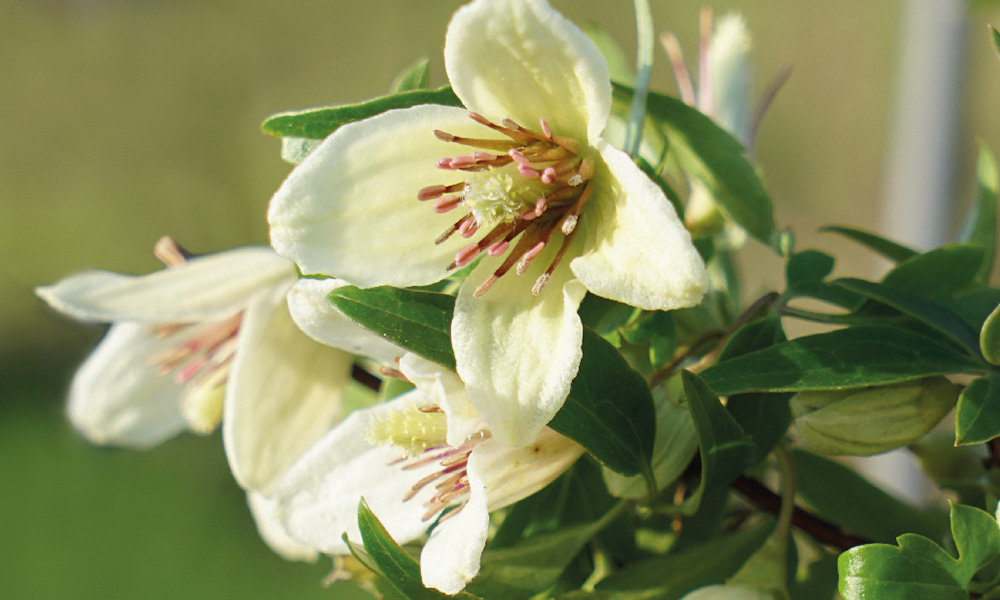top 10 plants for bees
top 10 plants for bees
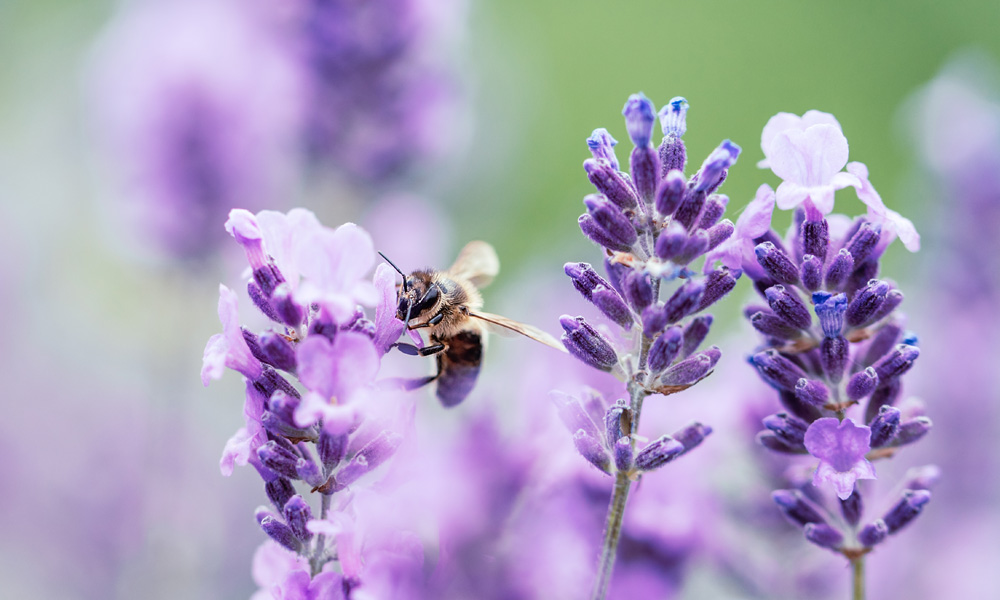
Bees are absolutely essential to our environment and are a gardener’s best friend, as they are responsible for pollinating the plants that we grow, both the flowers in our gardens and the food we eat. Unfortunately, bee populations are declining, and some species could become extinct. One of the easiest ways to help the bees is to plant a bee-friendly garden. Bee-friendly plants are rich in nectar and pollen which is vital to bees as these contain the nutrients they need to give them energy and to survive. Keep reading for our top 10 plants for bees.
Lavender
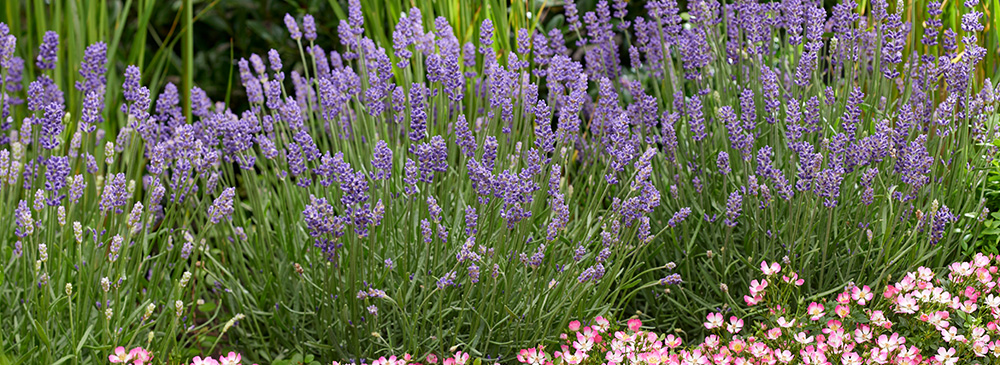
A cottage garden must, Lavender is a firm favourite with bees and it will be a favourite with you too when you smell its wonderful signature fragrance that both the blooms and the foliage give off. The spikes of flowers appear in summer, filling your garden with scent and your home too, as they make excellent cut flowers.
Echinacea
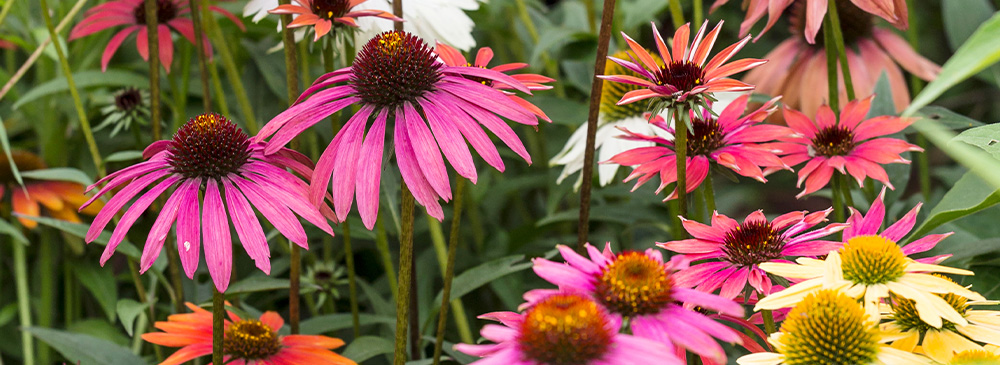
Echinacea are irresistible to both bees and butterflies due to the sheer amount of pollen and nectar they produce, along with their large centres, giving pollinators plenty of room to land on. Blooming all summer and autumn long, they’re another great choice for coastal gardens as they can easily cope with salt spray, wind, cold, heat and sun.
Geum
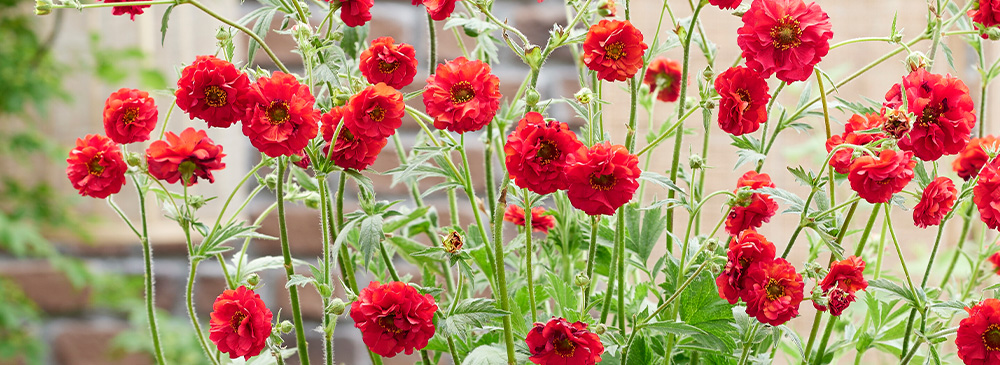
A bright addition to flower borders, this pest resistant perennial will add a pop of colour to your garden. Large frilly, semi-double blooms are held high on wiry stems above attractive mounds of foliage from mid-spring through to summer, bringing both bees and butterflies flocking into your garden. The flowers are then followed by attractive, fluffy seedheads, giving you extra interest.
Penstemon
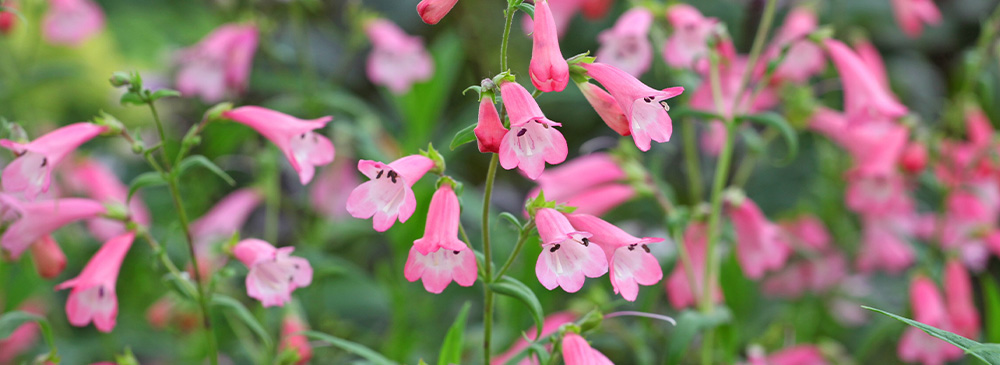
If there’s one plant you can have in your garden, we suggest choosing a Penstemon. Blooming for over six months each year, they are so easy to grow, resistant to slugs and other garden pests and unfussy on soil conditions. Bees will happily fly inside the bell-shaped flowers to drink the nectar inside when they bloom from May right through to October and often even longer.
Achillea
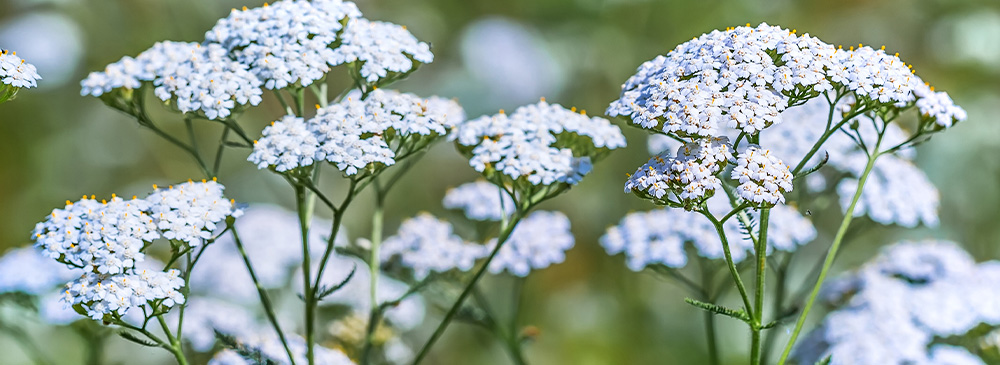
A colour-changing tapestry for your borders, huge, plate-like flowerheads made up of masses of tiny blooms appear in May and continue right through to October. Not only do the bees love Achillea, but they’re also attractive to birds, butterflies and other beneficial insects and pollinators.
Eryngium
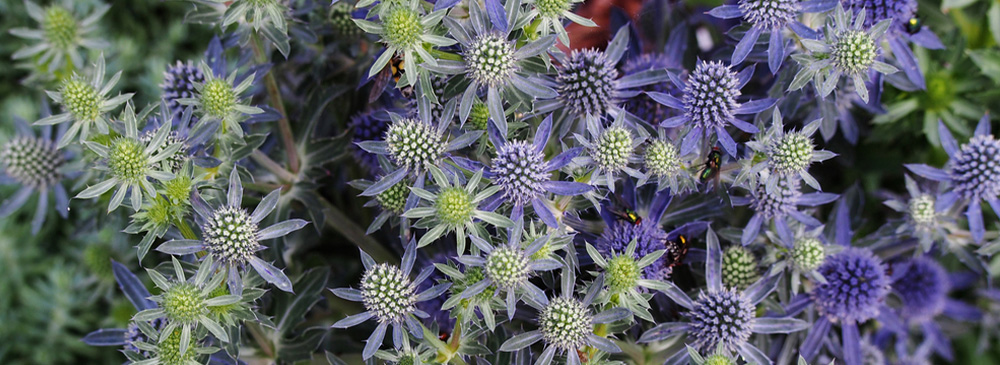
The bees will literally dance on top of the large, prickly, thistle-like flowerheads of Eryngium which appear during summer above silvery foliage. Brilliant for adding texture to your borders amongst other flowering plants and a perfect choice for coastal gardens as they will easily cope with salt spray, wind and drought.
Hellebores
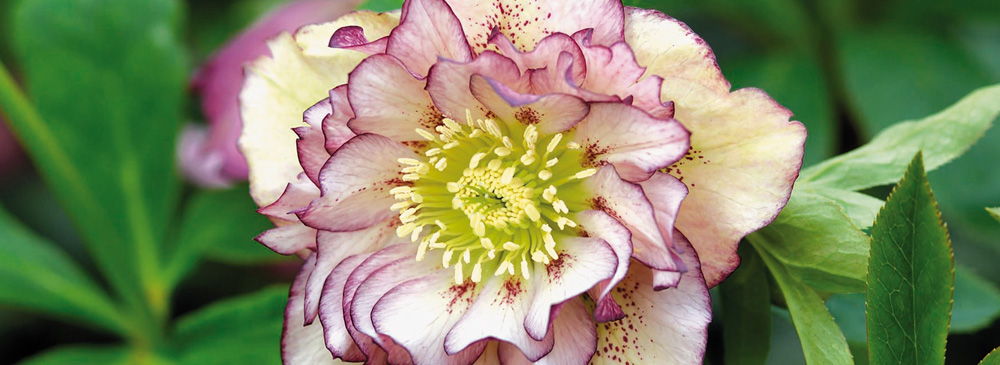
Here at Hayloft, we absolutely love our Hellebores. Whilst other plants slumber, bring a magical touch to your garden with their luxuriant blousy blooms and abundant evergreen foliage. They may look dainty in appearance but don’t be fooled as they are sturdy plants that will survive the cold temperatures of winter and remain awe-inspiring.
Foxgloves
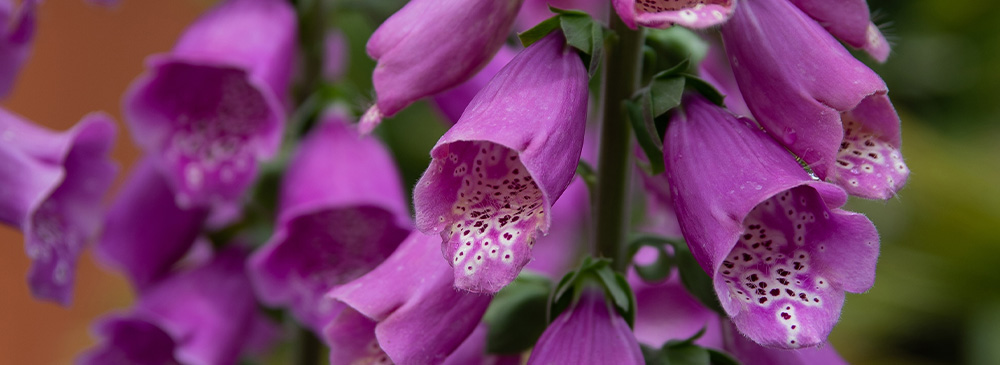
Digitalis (Foxgloves) have an exceptionally long flowering time, which in turn provides the bees with plenty of flowers. Densely packed spires of blooms are held above semi-evergreen foliage from summer through to autumn. You’ll just love watching the bee’s fuzzy bottoms poking out of the end of the flowers as they climb in to dine on the nectar.
Monarda
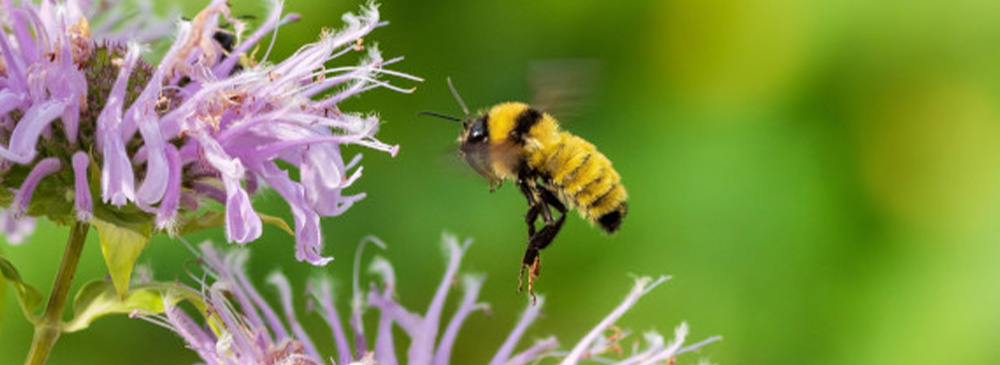
More commonly known as Bee Balm, it’s really not hard to see why as the bees just can’t resist the bright blooms and will be flocking to them in abundance. Unusual, shaggy flowerheads bloom above fragrant foliage in summer. They are often used in pot-pourri, due to their wonderful spicy citrus scent, similar to that of earl grey tea.
Phlox
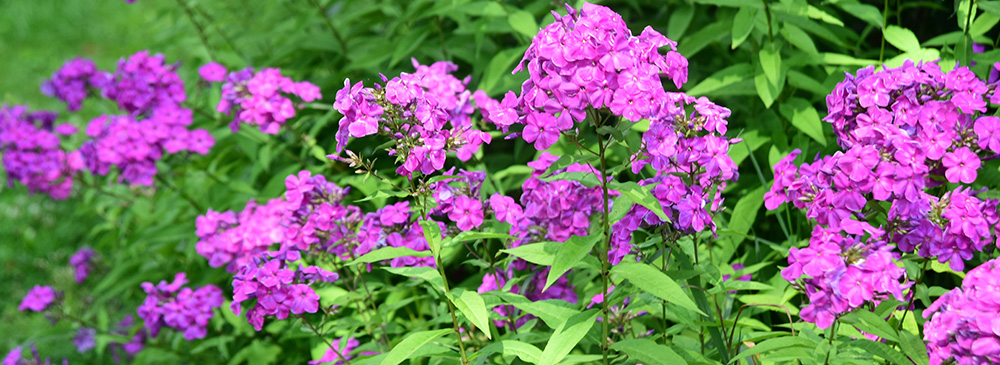
On a summer’s day, the head-spinning, mouth-wateringly sweet scent of Phlox is produced in clouds, perfect for enticing in the bees and butterflies. Lots of small blooms form huge flowerheads in summer and autumn, giving the pollinators plenty to feast on. Happy planted in both borders and containers and tolerant of all soil conditions, plus it also has the added bonus of being slug resistant too.

